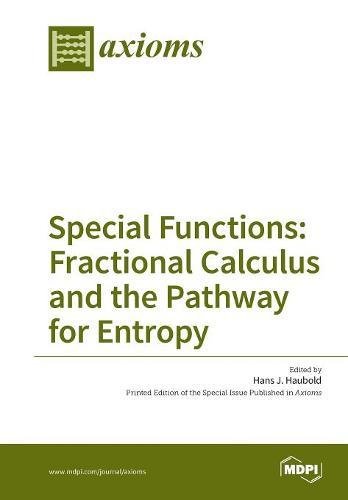
Special Functions: Fractional Calculus and the Pathway for Entropy
by Hans J. Haubold (ed.)
Publisher: MDPI AG 2018
ISBN-13: 9783038426653
Number of pages: 306
Description:
Historically, the notion of entropy emerged in conceptually very distinct contexts. This book deals with the connection between entropy, probability, and fractional dynamics as they appeared, for example, in solar neutrino astrophysics since the 1970's.
Download or read it online for free here:
Download link
(24MB, PDF)
Similar books
 Lectures on Black Holes, Topological Strings and Quantum Attractors
Lectures on Black Holes, Topological Strings and Quantum Attractorsby Boris Pioline - arXiv
In these lecture notes, the author reviews some recent developments on the relation between the macroscopic entropy of four-dimensional BPS black holes and the microscopic counting of states, beyond the thermodynamical, large charge limit.
(11931 views)
 Cosmology and Astrophysics
Cosmology and Astrophysicsby Juan Garcia-Bellido - arXiv.org
In these lectures I review the present status of the so-called Standard Cosmological Model, based on the hot Big Bang Theory and the Inflationary Paradigm. I will make special emphasis on the recent developments in observational cosmology ...
(9071 views)
 Cosmic Rays and the Search for a Lorentz Invariance Violation
Cosmic Rays and the Search for a Lorentz Invariance Violationby Wolfgang Bietenholz - arXiv
This is an introductory review about the on-going search for a signal of Lorentz Invariance Violation (LIV) in cosmic rays. The author first summarizes basic aspects of cosmic rays, focusing on rays of ultra high energy (UHECRs).
(16514 views)
 Introduction to Cosmology
Introduction to Cosmologyby David H Lyth - arXiv
These notes form an introduction to cosmology with special emphasis on large scale structure, the cmb anisotropy and inflation. In some places a basic familiarity with particle physics is assumed, but otherwise no special knowledge is needed.
(15148 views)